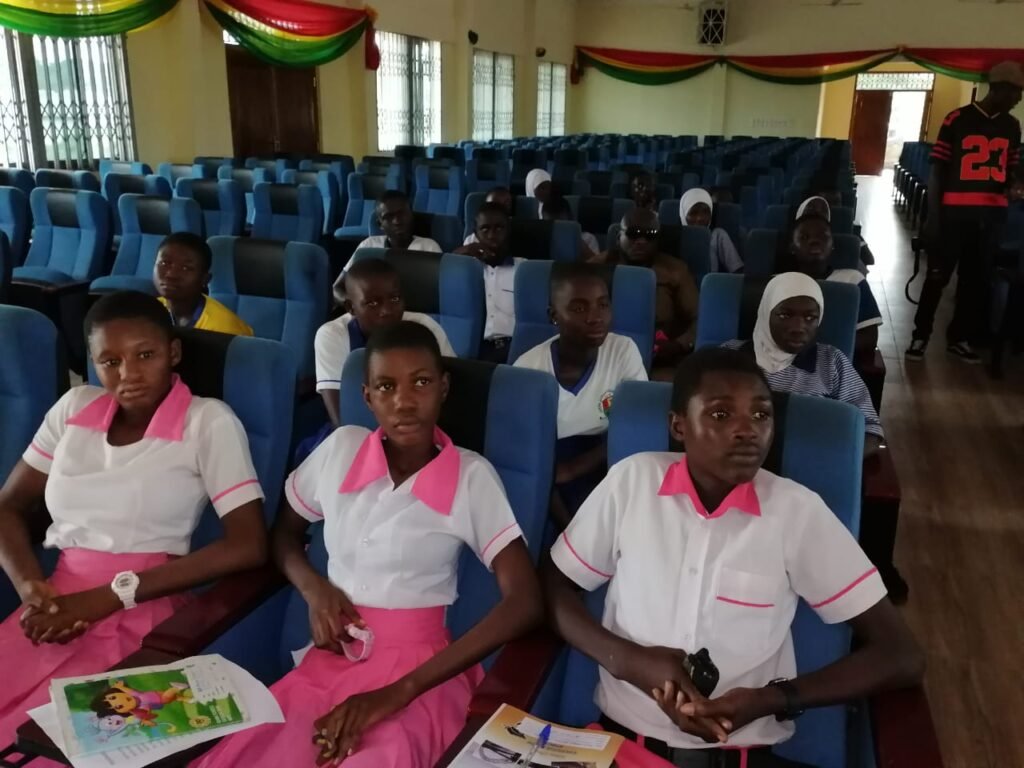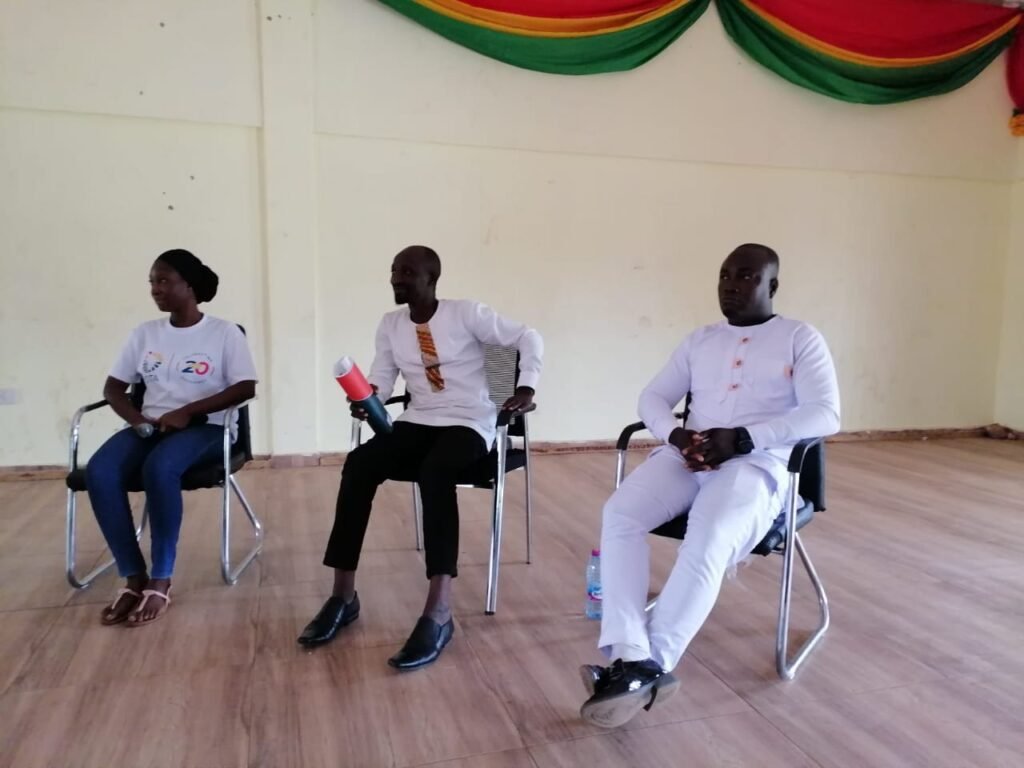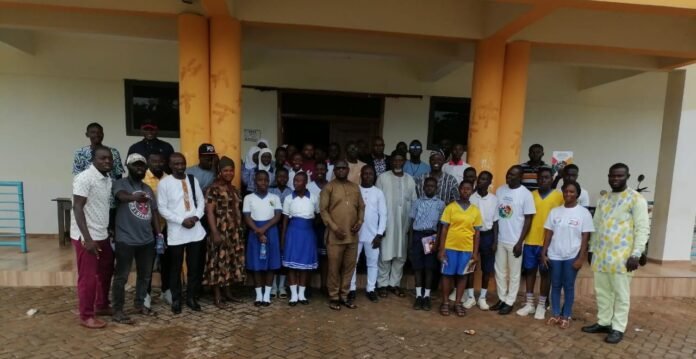West Gonja Municipal chapter of Voice of Youth Coalition (VoYC), a collective of youth organizations and advocates under the YOTA-led Youth on Board project, convened a youth dialogue to share and examine the key findings of the 2024 Ghana Youth Barometer report, focusing on young people’s views on education and their future prospects.
Through the Youth on Board project, the Youth Opportunity and Transformation in Afica (YOTA) aims to amplify youth voices, driving change and investment in Ghana’s education sector to address pressing issues of accessibility and quality, heightened by the COVID-19 crisis.

The dialogue, held on Friday, October 4, 2024, in the Damongo community center, featured a presentation of the report findings, panel discussion and interactive sessions with key stakeholders and several young people in attendance. The comprehensive report assesses the educational experiences, future aspirations, and self-perceived preparedness of young Ghanaians, offering valuable perspectives on their outlook.
Mr John Lipoyema Takorah, Vice President of the Voice of Youth Coalition, In his welcome remarks, said there was an urgent need for education reform to meeting diverse needs of all young people. He said Voice of Youth Coalition (VoYC) has for the past two years, been advocating for the re-enrollment of teenage mothers in basic schools to ensure every young girl has a second chance at education and an opportunity to reach their full potential.
Presenting the findings of the study, Mr. Lipoyema indicated that the study sampled young people aged 15 to 35 across the 16 administrative regions of Ghana with a sample size of 1,940 participants, comprising 1,122 urban and 818 rural youth and 970 male and female apiece.

According to the study, majority of young Ghanaians (42.9 percent) held the view that the education system in Ghana was retrogressing and another section (27.5 percent) said it was declining, while for some (24.8 percent), the education system was progressing.
Revelations of the study attributed the progressing status to factors such as increasing access to education and improvements in infrastructure while the earlier attributed the retrogression and declining to the education curriculum being too theoretical and often lacking a connection between the learned theories and their practical application in life.
Meanwhile, the study indicated that a greater proportion of (40.5 percent) young people agreed while (12 percent) strongly agreed that the education system has adequately prepared them for working life in the future. The report highlights a notable preference among young people for self-employment at (67.5%), surpassing interest in public sector (48.6%) and private sector (35.5%) employment opportunities.
According to the report, young people identified three main obstacles that hinder them from achieving their employment goals. (62.5%) many young individuals feel they don’t possess the necessary knowledge, skills, or qualifications to secure their desired jobs, (41.2%) indicates that young people believe having limited professional networks, mentors, or influential contacts hampers their ability to access employment opportunities, whiles (35.2%) reveals that health issues, possibly due to inadequate healthcare or prevailing health conditions, prevent some young individuals from pursuing or maintaining employment.

These findings highlight areas where interventions, support, and resources are needed to empower youth to overcome these challenges and achieve their employment aspirations.
Mr Kanyiti Saburu Kantama, a youth activist and aide to the NPP savannah region chairman, urged for a change of mindset of the Ghanian youth towards some courses of study in the second cycle institutions, citing the notion that some students after passing through their basic education through to secondary education goes back to learn handy works which he says sometimes looks like waste of human and capital resources, thereby promoting Technical and Vocational Educational Training (TVET).
The Youth on Board project is implemented by YOTA in partnership with 100% for the Children with support from Danish Civil Society in Development (CISU)




